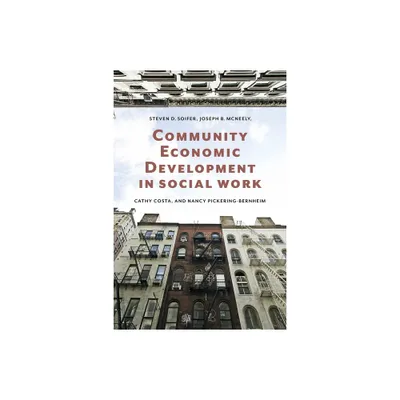Home
Social Work, Welfare, and Development Nigeria: A Postcolonial Perspective
Loading Inventory...
Barnes and Noble
Social Work, Welfare, and Development Nigeria: A Postcolonial Perspective
Current price: $160.00


Barnes and Noble
Social Work, Welfare, and Development Nigeria: A Postcolonial Perspective
Current price: $160.00
Loading Inventory...
Size: Hardcover
*Product Information may vary - to confirm product availability, pricing, and additional information please contact Barnes and Noble
This groundbreaking book provides a comprehensive account of social work, social welfare, and social development in Nigeria from a postcolonial perspective. It examines the historical development of social work and social welfare and the colonial legacies affecting contemporary social welfare provision, development planning, social work practice, and social work education.
Against this historical backdrop, it seeks to understand the position of social work within Nigeria’s minimalist structure of welfare provision and the reasons why social work struggles for legitimacy and recognition today. It covers contexts of social work practice, including child welfare, juvenile justice, disabilities, mental health, and ageing, as well as areas of development-related problems and humanitarian assistance as new areas of practice for social workers, including internally displaced and trafficked people, and their impact on women and children. It seeks to understand Nigeria’s ethnoreligious diversity and indigenous cultural heritage to inform culturally appropriate social work practice.
This book offers a global audience insight into Nigeria’s developmental issues and problems and a local audience – social science and human service researchers, educators, practitioners, students, and policymakers - a glimpse of what’s possible when people work together toward a common goal.
It will be of interest to all scholars and students of social work, development studies and social policy.
Against this historical backdrop, it seeks to understand the position of social work within Nigeria’s minimalist structure of welfare provision and the reasons why social work struggles for legitimacy and recognition today. It covers contexts of social work practice, including child welfare, juvenile justice, disabilities, mental health, and ageing, as well as areas of development-related problems and humanitarian assistance as new areas of practice for social workers, including internally displaced and trafficked people, and their impact on women and children. It seeks to understand Nigeria’s ethnoreligious diversity and indigenous cultural heritage to inform culturally appropriate social work practice.
This book offers a global audience insight into Nigeria’s developmental issues and problems and a local audience – social science and human service researchers, educators, practitioners, students, and policymakers - a glimpse of what’s possible when people work together toward a common goal.
It will be of interest to all scholars and students of social work, development studies and social policy.


















